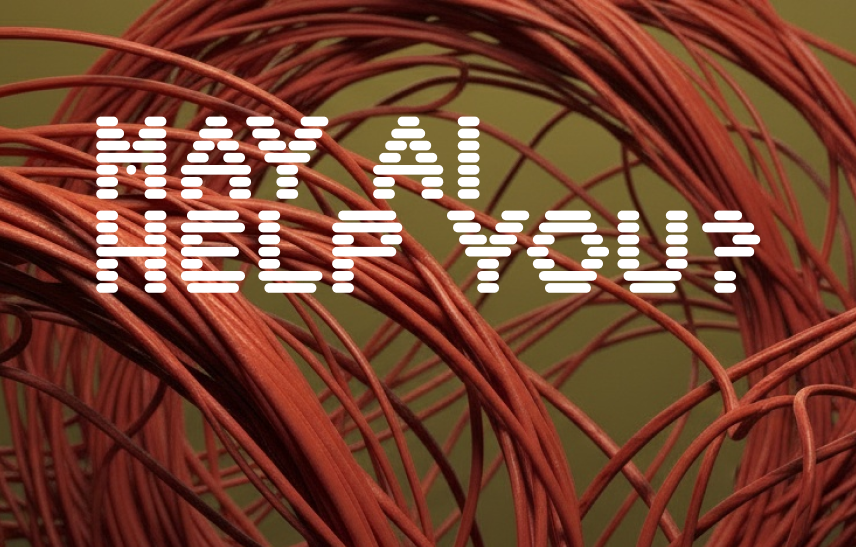Patchlab 2025: May AI Help You?
Digital technologies permeate every area of life, and with them grows our dependence on those who design and control them. This is why the question of digital agency is crucial today: for whom, in what ways, and on whose terms should artificial intelligence be helping?
The past two years have seen unprecedented acceleration in AI development, especially in generative models that create text, image, and sound. The year 2023 revealed the scale of this phenomenon, and each new update pushes the boundaries of what we consider machine intelligence.
These systems can accumulate knowledge, model the intentions of their interlocutors, decide what content we see and which narratives are deemed significant. Algorithms filter experiences, homogenise culture, and flatten nuance — they may facilitate disinformation, raising questions about whether AI can amplify (rather than replace) human agency, and when “help” becomes formatting or supervision that shapes our everyday lives.
Digital art has engaged with algorithms for years; today, thanks to the widespread availability of generative tools, AI is increasingly part of the creative process — as sketchbook, partner, and experimental environment. What interests us is how artists work with models in practice: from data and prompts to live performative uses.
The title of the 14th edition of the Patchlab Festival — May AI Help You? — is meant both literally and ironically. Can AI truly help us, and if so, how? In a world where machines co-create narratives, we ask: on what terms is art possible, and what forms might human–machine collaboration take?
In this year’s exhibition programmed in collaboration with FutureEverything and supported by the British Council, together with Irini Papadimitriou we present artworks that allow us to “look inside” AI-based creative processes. Rather than offering conclusions, they show practices in which artists negotiate the frameworks of collaboration with the machine, test tools, and question both the conditions of working with AI and the future of the internet. At Pałac Potockich Gallery we showcase artworks by British artists including Lawrence Lek — one of the UK’s most important creators working with simulation and AI; Memo Akten, a pioneer of artistic explorations of neural networks; and the post-disciplinary duo Y7, whose video essay on non-human optimisation of online life will have its world premiere in Kraków. The German duo mots will confront each of us with an unfiltered opinion delivered by AI; fuse* will take us on a hypnotic journey through dreams analysed by algorithms; and Jacek Nagłowski, nominated for the Polityka Passport award, will immerse audiences in a VR experience created entirely in dialogue with different AI models.
The rich programme of live audiovisual performances presents projects where AI is explored poetically and engaged as a partner in creation. Program features among others Andreas Lutz with Abstract Language Model; Claudia Larcher & Ursula Winterauer exploring the phenomenon of AI hallucinations; and the Spanish trio with Alhaja, a virtual work inspired by the folklore of La Mancha and Andalusia. Iranian artist Ali Phi will present Decompositions for Computers on Sunday evening at Cricoteka — an extraordinary project inspired by wasted data, including traces left after death — shown for the first time in Poland following its world premiere in Miami. There will also be opportunities to enjoy the light-and-sound immersions of the French collective Symbiotique with their spectacular liquid show; Infratonal from Paris in Misalignment, a poetic, multisensory performative dialogue between human and AI; and Javier Muñoz, who will deliver a stunning live VR DJ set at the festival club in Hevre+1.
The programme also includes research-driven projects and knowledge – building around AI – AI & Us and the youth-focused educational Everywhere, All the Time at Apteka Designu – along with talks featuring experts and artists to help form opinions and attempt to answer the festival’s central question.
I invite you to join us in exploring this terrain.
Elwira Wojtunik
Artistic Director, Patchlab Festival
